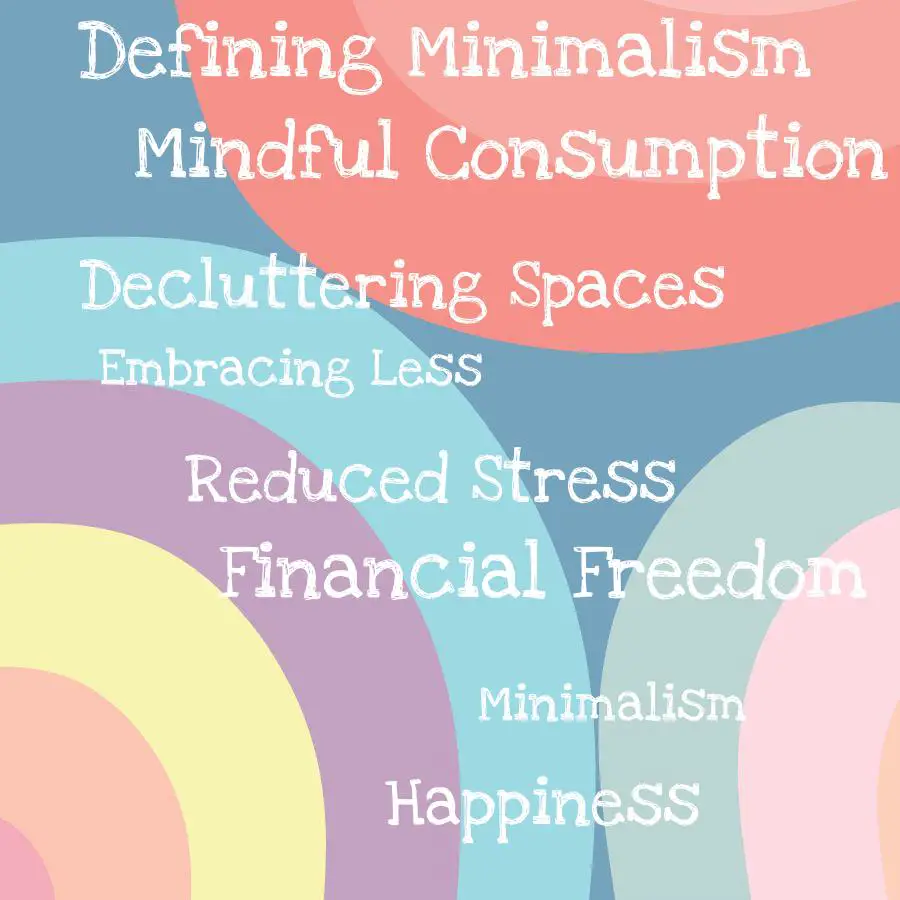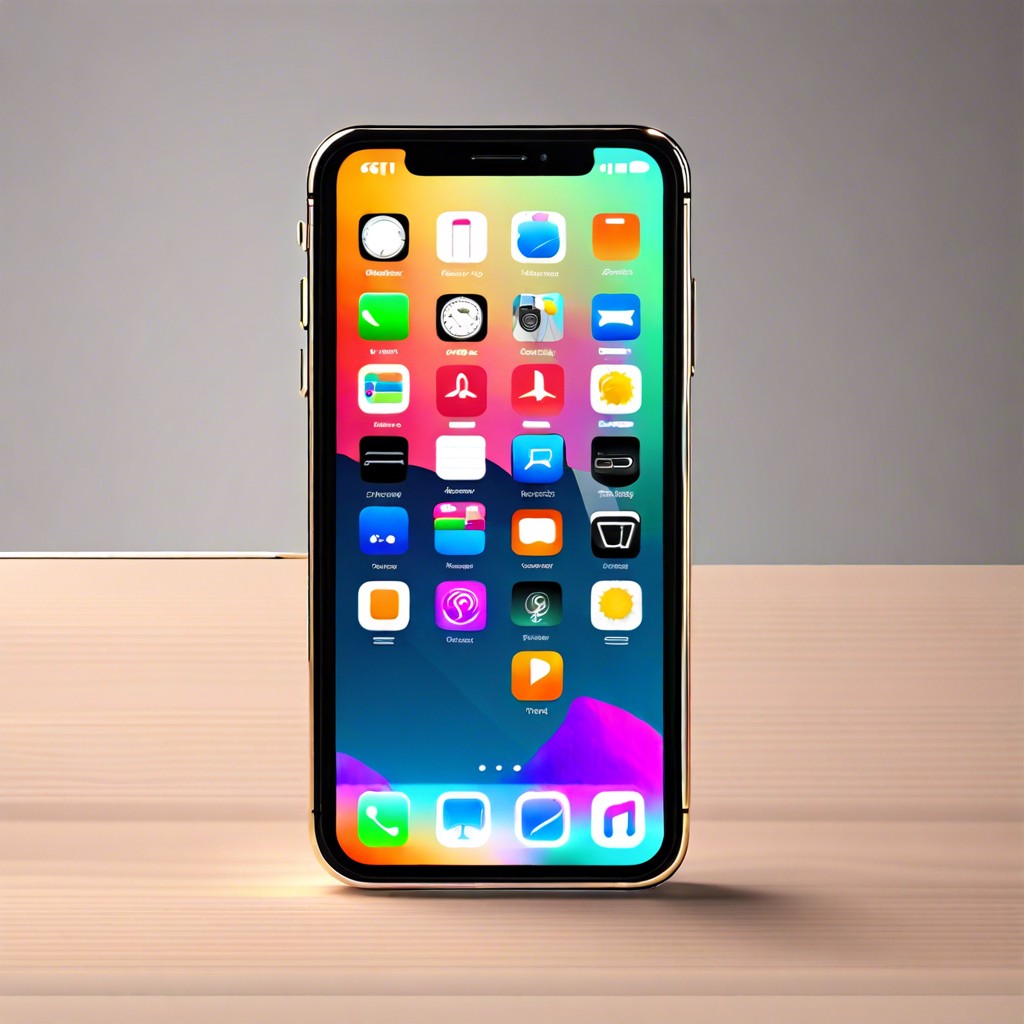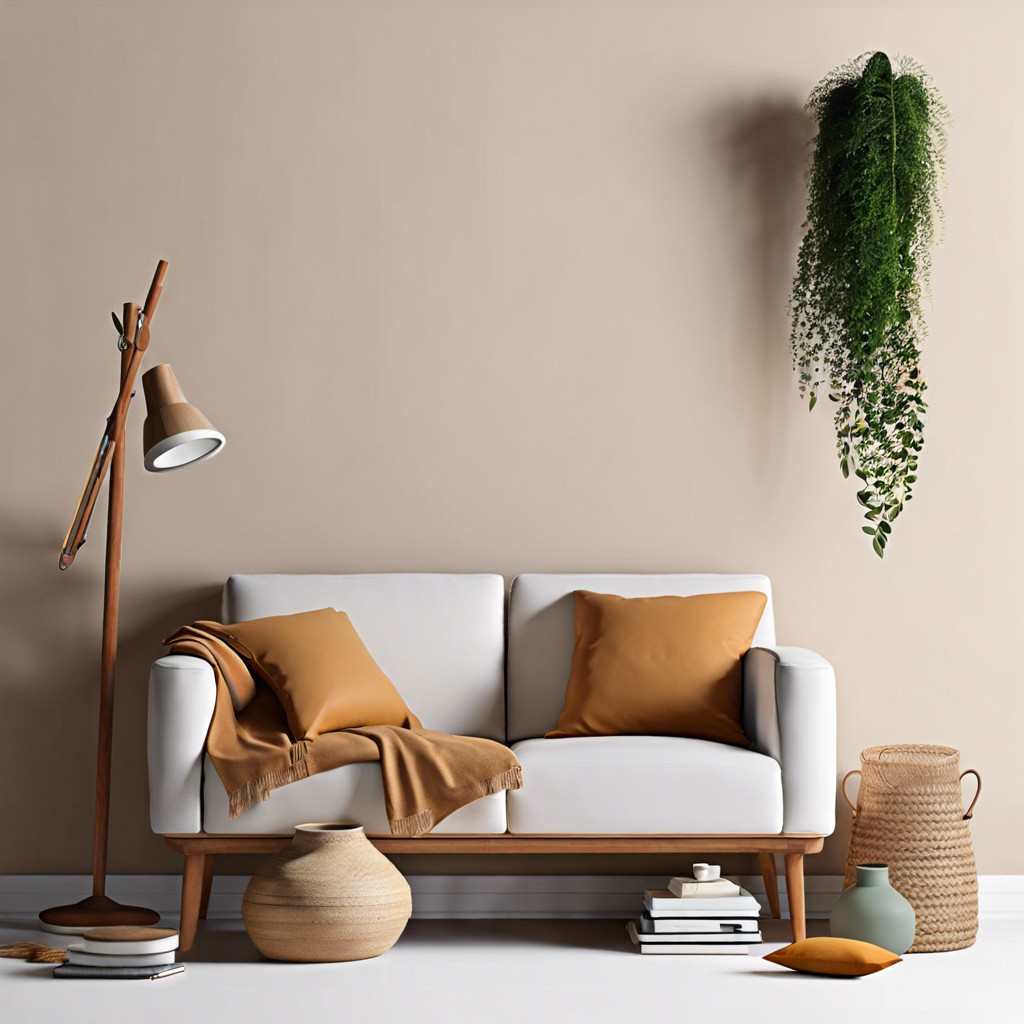Last updated on
Discover how embracing minimalism can bring you more happiness and fulfillment in life.
As I sat in my cluttered apartment, surrounded by piles of clothes, stacks of books, and knick-knacks that served no purpose other than to collect dust, I couldn’t help but feel overwhelmed. It was as if the physical clutter around me had seeped into my mind and left me feeling anxious and stressed.
That’s when I discovered minimalism – the art of living with less.
At first, the idea of getting rid of my belongings seemed daunting. But as I began to declutter and simplify my life, something amazing happened.
The more items I let go of, the lighter I felt. My mind became clearer and more focused on what truly mattered in life – experiences over possessions.
In this blog post, we’ll explore the benefits of minimalism beyond just having a tidy home. We’ll dive into how embracing a minimalist lifestyle can bring more happiness into your life by reducing stress levels, increasing productivity, and fostering meaningful relationships.
So sit back and get ready to discover how less can truly be more!
Key takeaways:
- Embracing minimalism brings happiness and fulfillment.
- Minimalism reduces stress and increases productivity.
- Financial freedom is a benefit of minimalism.
- Minimalism promotes stronger relationships.
- Minimalism has positive effects on the environment.
Table of Contents
Defining Minimalism

Minimalism is often misunderstood as a lifestyle of deprivation or living with bare necessities. However, it’s much more than that.
Minimalism is about intentionally simplifying your life by getting rid of excess possessions and focusing on what truly matters to you.
As I began my journey towards minimalism, I realized that it wasn’t just about decluttering my physical space but also decluttering my mind and emotions. By letting go of things that no longer served me, such as clothes I never wore or books I never read, I was able to create more mental space for the things that brought me joy.
Minimalism allowed me to focus on experiences rather than material possessions. Instead of spending money on buying new things all the time, which only provided temporary happiness at best; now when shopping for something new – be it clothing or home decor – I ask myself if this item will add value in terms of functionality and aesthetics before making a purchase decision.
Minimalism isn’t just about having less stuff; It’s an intentional way of living where we prioritize our values over materialistic desires while creating room for meaningful experiences in our lives!
Decluttering Spaces
Decluttering spaces is one of the first steps towards embracing minimalism. As I began to declutter my apartment, I realized that many of the items taking up space were things that I didn’t need or use regularly.
It was liberating to let go of these possessions and create more physical space in my home. But decluttering isn’t just about creating a tidy living environment; it can also have a positive impact on our mental health.
Studies have shown that cluttered spaces can lead to increased stress levels and decreased productivity, while organized environments promote feelings of calmness and focus. By simplifying our surroundings, we free ourselves from distractions and allow room for what truly matters – experiences with loved ones, pursuing hobbies we enjoy, or simply relaxing without feeling overwhelmed by visual noise.
So if you’re feeling weighed down by your belongings or constantly battling clutter in your home or workspace, consider taking the first step towards minimalism by decluttering your spaces. You may be surprised at how much lighter you feel both physically and mentally!
Financial Freedom
As I continued to embrace minimalism, I realized that it wasn’t just my mental and emotional well-being that was improving. My financial situation was also benefiting from living with less.
By reducing my spending on unnecessary items, I had more money to put towards experiences and investments. Minimalism has taught me the value of quality over quantity.
Instead of buying cheap items that would need replacing in a few months, I invested in high-quality pieces that would last for years. This not only saved me money in the long run but also reduced waste by avoiding disposable products.
Living a minimalist lifestyle has allowed me to prioritize what truly matters – experiences over possessions – which has led to greater financial freedom and stability. It’s amazing how much happier you can be when you’re not weighed down by material possessions!
Reduced Stress
As I continued to declutter my home, I noticed a significant reduction in stress levels. The physical clutter that once surrounded me was no longer there to overwhelm and distract me.
Instead, my space became a peaceful sanctuary where I could relax and recharge. Studies have shown that living in an organized environment can reduce cortisol levels – the hormone associated with stress – leading to improved mental health and overall well-being.
By simplifying your surroundings, you create a sense of calmness that can positively impact your mood. But it’s not just about having less stuff; it’s also about being intentional with what you keep.
Minimalism encourages us to focus on quality over quantity, which means we surround ourselves only with things we truly love or need. By reducing our possessions down to the essentials, we free up mental energy previously spent on managing cluttered spaces or worrying about acquiring more things.
This newfound clarity allows us to be more present in our daily lives and enjoy the simple pleasures without distraction or anxiety. In short: minimalism isn’t just good for tidying up; it’s good for your mind too!
Mindful Consumption
One of the key principles of minimalism is mindful consumption. It’s about being intentional with what you bring into your life and making sure it aligns with your values and goals.
As I continued to declutter my home, I realized how much money and time I had wasted on buying things that didn’t truly add value to my life. I started asking myself questions before making a purchase – “Do I really need this? Will it bring me joy or just clutter?” By doing so, not only did I save money but also reduced the amount of waste in my life.
Mindful consumption has also helped me appreciate what I already have instead of constantly seeking more. It’s amazing how much happiness can be found in gratitude for what we already possess rather than always wanting more.
Embracing minimalism has taught me that true happiness doesn’t come from material possessions but from living a purposeful, intentional life where every item serves a meaningful purpose.
Enhanced Focus
As I continued to declutter my life, I noticed a significant improvement in my ability to focus. With fewer distractions around me, it became easier to concentrate on the task at hand.
Instead of feeling overwhelmed by the clutter and chaos in my surroundings, I was able to direct all of my attention towards what truly mattered. Studies have shown that physical clutter can lead to mental clutter and decreased productivity.
By embracing minimalism and simplifying your environment, you can enhance your focus and increase your efficiency. Having a clear space allows for more creativity as well.
When there are no distractions or unnecessary items taking up space in our minds or homes we are free from any limitations that may be holding us back from exploring new ideas or pursuing our passions. Minimalism has allowed me not only greater clarity but also an opportunity for growth both personally and professionally through enhanced creativity which is why it’s worth considering if you’re looking for ways improve yourself!
Stronger Relationships
As I continued to embrace minimalism, I noticed a shift in my relationships as well. Instead of focusing on material possessions and trying to keep up with the latest trends, I found myself investing more time and energy into building meaningful connections with the people around me.
By letting go of unnecessary belongings, I had more space – both physically and mentally – for socializing. Rather than spending weekends shopping or cleaning out cluttered closets, my friends and family became a priority.
I also discovered that by simplifying my life, it was easier to be present in conversations without distractions from technology or other obligations. This allowed me to truly connect with others on a deeper level.
Minimalism has taught me that true happiness comes not from what we own but from who we surround ourselves with. By prioritizing relationships over possessions, we can cultivate stronger bonds that bring joy into our lives every day.
The Echoing Effects of Minimalism On the Environment
Minimalism not only has a positive impact on our personal lives, but it also extends its benefits to the environment. By embracing minimalism and reducing our consumption habits, we can significantly reduce waste and contribute to a more sustainable future.
One of the key principles of minimalism is owning fewer possessions, which means less production and fewer resources being used in manufacturing processes. This reduction in consumption directly translates into reduced energy usage, decreased carbon emissions from transportation and production facilities, as well as less strain on natural resources such as water and raw materials.
By choosing quality over quantity when making purchases or opting for second-hand items instead of new ones whenever possible, we can further minimize our environmental footprint. The ripple effects of adopting a minimalist lifestyle are far-reaching; they not only bring us happiness but also help preserve the planet for future generations.
Simplify: The Art of Letting Go in Minimalism
In a world that constantly bombards us with advertisements and encourages consumerism, embracing minimalism allows us to simplify our lives by decluttering both our physical and mental spaces. By letting go of unnecessary possessions, we create more room for what truly matters to us.
This act not only frees up physical space in our homes but also helps clear our minds from the constant distractions that come with excess belongings. Letting go can be challenging at first, as we often attach sentimental value or emotional significance to certain items.
However, once we start practicing this art and experience the freedom it brings, we realize that true happiness lies not in accumulating material possessions but in living a simpler life focused on what truly brings joy and fulfillment.
Emotional Clarity: The Unexpected Psychological Gain From Minimalism
By decluttering our physical spaces and simplifying our lives, we create a sense of calm and clarity that extends to our mental state. When we let go of excess possessions and focus on what truly matters, we free ourselves from the burden of materialistic desires.
Minimalism allows us to detach ourselves from societal pressures and expectations, enabling us to prioritize experiences over possessions. This shift in mindset helps us cultivate gratitude for what we already have rather than constantly seeking more.
As a result, minimalism fosters contentment and reduces feelings of envy or comparison with others.
Moreover, by reducing clutter in both our physical environment and mental space, minimalism promotes better focus and concentration. With fewer distractions vying for attention, it becomes easier to stay present in the moment without being overwhelmed by unnecessary stimuli.
In addition to these practical benefits, adopting a minimalist lifestyle can also lead to improved emotional resilience. Letting go of sentimental attachments or outdated beliefs allows room for personal growth while fostering adaptability when faced with change or challenges.
Embracing minimalism offers unexpected psychological gains such as increased emotional clarity through decluttering both physically and mentally.
Quality Over Quantity: How Adopting Minimalism Improves Lifestyle
In a world that often encourages us to accumulate more and more possessions, minimalism challenges this notion by emphasizing the importance of choosing items that truly add value to our lives.
By focusing on quality rather than quantity, we can make intentional decisions about what we bring into our homes. This means investing in well-made products that are built to last instead of buying cheaply made items that will quickly wear out or become obsolete.
Choosing quality over quantity also extends beyond material possessions. It applies to all aspects of life, including relationships and commitments.
By being selective about the people we surround ourselves with and the activities we engage in, we can create space for meaningful connections and experiences.
Adopting this mindset not only helps declutter our physical spaces but also reduces mental clutter. When surrounded by fewer belongings or distractions, it becomes easier to appreciate what truly matters in life – whether it’s spending time with loved ones or pursuing personal passions.
In embracing minimalism’s focus on quality over quantity, individuals often find themselves experiencing greater satisfaction with their choices and an increased sense of contentment overall. The pursuit of less allows for a deeper appreciation for what remains – those few carefully chosen items or experiences that genuinely enhance our lives.
Practical Steps Towards Embracing a Minimalistic Living
Here are some actionable tips to help you get started:
1. Assess Your Belongings: Begin by evaluating all of your possessions and determining what truly adds value to your life.
Ask yourself if each item serves a purpose or brings you joy. If not, consider letting go of it.
2. Declutter Room by Room: Take one room at a time and systematically declutter the space.
Sort items into categories such as keep, donate/sell, or discard. Be ruthless in letting go of things that no longer serve you.
3.Minimize Wardrobe: Streamline your wardrobe by keeping only the clothes that fit well, make you feel confident, and align with your personal style preferences.
4.Digital Detox: Extend minimalism beyond physical belongings by organizing digital files on devices like computers and smartphones.Remove unnecessary apps,email subscriptions,and old files.This will help create mental clarity amidst digital clutter.
5. Organize Mindfully: Adopt an organized approach for storing items in designated spaces.Use storage solutions like bins,baskets,and shelves.Label containers clearly so everything has its place.This will make it easier to maintain orderliness going forward. By taking these practical steps towards embracing minimalistic living,you can create an environment that promotes simplicity,ease,and happiness while reducing stress associated with excess stuff.
FAQ
How does minimalism lead to increased happiness?
Minimalism increases happiness by reducing worry, stress, and chaos, shifting focus to quality relationships, simple life pleasures, and spiritual wellbeing.
Does having less stuff make you happier?
Yes, according to various studies, having less possessions tends to increase gratitude and consequently, happiness.
Does minimalism when living with less mean more mental health?
Yes, living with less via minimalism can improve one’s mental health by creating a calmer environment that reduces stress and promotes well-being.
Can minimalism enhance one’s sense of well-being and life satisfaction?
Yes, minimalism can enhance one’s sense of well-being and life satisfaction by reducing stress levels, increasing focus on important aspects and simplifying lifestyle.
How does adopting a minimalist lifestyle contribute to stress reduction?
Adopting a minimalist lifestyle contributes to stress reduction by eliminating unnecessary, distracting clutter thus promoting enhanced focus, peace of mind and control over the surrounding environment.
Does a minimalist environment aid in fostering clearer thinking and better focus?
Yes, a minimalist environment can promote clearer thinking and better focus by limiting distractions and creating a calm atmosphere.




